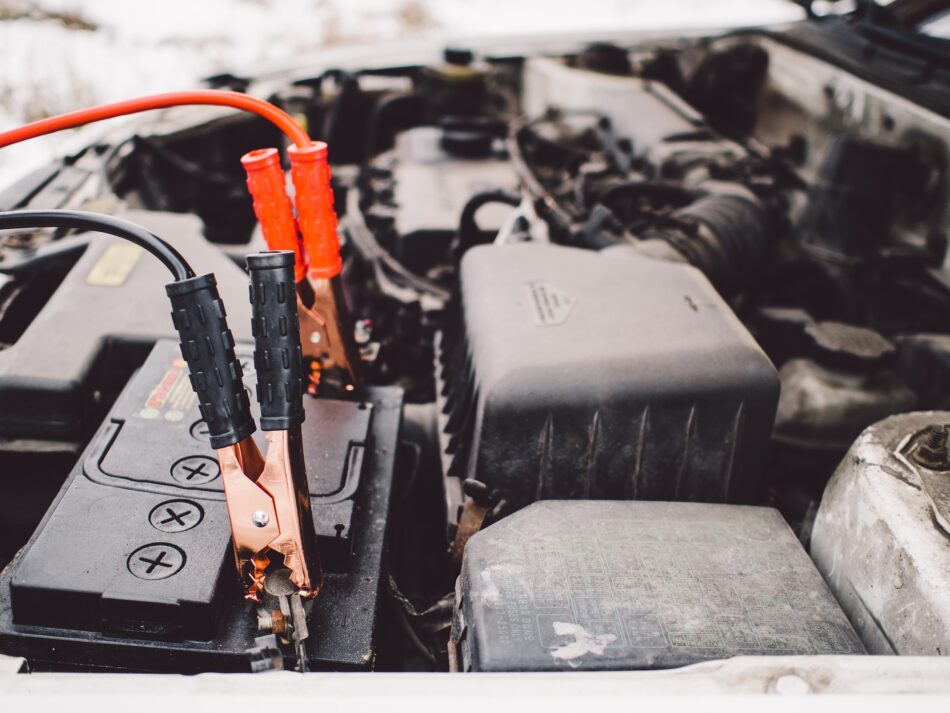Prepare Your Business for New Food Waste Legislation in the UK
From 31 March 2025, most UK businesses must arrange separate food waste collections. Learn and prepare for the new food waste legislation in the UK.

Disposing of car batteries in the right way once they reach the end of their lives is essential to protect our planet and human health. As they’re hazardous in nature, improper disposal could lead to various problems. Whether you need to dispose of a car battery from your personal or work vehicle, doing so properly is important.
There are a few options for car battery disposal in the UK – choose the most appropriate one to get rid of any used car batteries you have. Learn where and how to dispose of a car battery with our answers to some of your frequently asked questions.
While the first car was invented in 1886, car batteries were not widely used until 1920. Gaston Planté, a French physicist, developed the first lead-acid batteries. However, the Hudson Motor Car Company patented the first lead-acid batteries explicitly designed for cars in 1918. It wasn’t until 1970 that sealed batteries (batteries that don’t need refilling) were introduced.
Old and used car batteries are a form of battery waste. They also typically class as a type of hazardous waste – as most batteries contain a variety of corrosive materials, such as sulphuric acid, and heavy metals like lead. There are different types of batteries though, including alkaline batteries (non-hazardous) and mercury batteries (hazardous).
The most common type of car batteries are lead-acid or lithium-ion batteries. Generally, most vehicles today use lithium-ion batteries. These are a form of non-hazardous waste but can be flammable and present a risk of explosion.
There are two types of car batteries, which are each made from slightly different materials:
Lithium-Ion batteries are manufactured similarly to other types of batteries. Active materials are mixed with polymers, conductive additives, and solvents until they form a slurry (a mixture of dense solids suspended in water). The slurry is then coated with foil and dried to remove the solvent.
Sometimes you can dispose of a car battery through your vehicle manufacturer or the garage where you purchased your car. Car battery disposal is also common at scrap metal facilities and recycling sites across the UK. You may need to use a hazardous waste disposal service in some areas, due to the nature of old car batteries.
If you run a garage or other type of automotive company, you’re responsible for disposing of car batteries properly once they’re no longer usable. This is different from getting rid of a car battery as an individual. As a result, you should:
When recycling lead-acid batteries, the batteries are first broken down. Then they’re neutralised in acid, which allows for materials such as lead to be extracted. The extracted materials can then be used to create new batteries.
The process for recycling lithium-ion batteries is a little different. Old lithium-ion car batteries are first crushed, which makes sorting through the different materials easier. It also allows for recovery of any electrolytes. After crushing, any reusable materials are extracted and prepared for reuse.
If sent to landfill sites, car batteries could be considered responsible for an increase in pollution levels. As they degrade, they will release several dangerous chemicals into the surrounding ground and atmosphere. However, it’s important to remember that both lithium-ion batteries and lead-acid batteries can be recycled.
It’s against the law to dispose of any form of battery alongside the rest of your general waste, even commercial waste. As a result, business owners within the automotive industry must work with a specialist waste management company to dispose of car batteries safely and securely.
At Business Waste, we pride ourselves on our low prices. Not only can we provide you with free access to bins and containers, but we’ll also put together a waste management plan that can help you save a great deal of money in the long run. Contact us for a free quote tailored to your company.
Thankfully, there are various initiatives in place to ensure old car batteries are recycled. As a result, it’s predicted that 98% of car batteries are recycled – meaning very few are sent to landfill sites.
A few facts about recycling car batteries are that:
Many car manufacturers and garages will take your old vehicle battery off your hands when it’s dead or you want to buy a new car. They’re then responsible for recycling the batteries. Alternatively, you can take them to local recycling centres or even scrap companies for free.
Disposing of electric car batteries should be done through the vehicle manufacturer. Most EV manufacturers offer schemes to collect old electric car batteries and recycle them. Other options to dispose of an electric car battery include asking your local garage or arranging commercial battery waste collections for business vehicles.
Electric car batteries should always be recycled, never sent to a landfill. Some EV batteries can be reused but those that have lost 30% or more of their original capacity will be recycled. The process involves removing valuable materials such as lithium, nickel, manganese, and cobalt for reuse.
Find out more about other rubbish streams.
Get a fast FREE quote for your battery waste
From 31 March 2025, most UK businesses must arrange separate food waste collections. Learn and prepare for the new food waste legislation in the UK.
The study participants included business owners and company employees, revealing unexpected findings about corporate environmental practices.